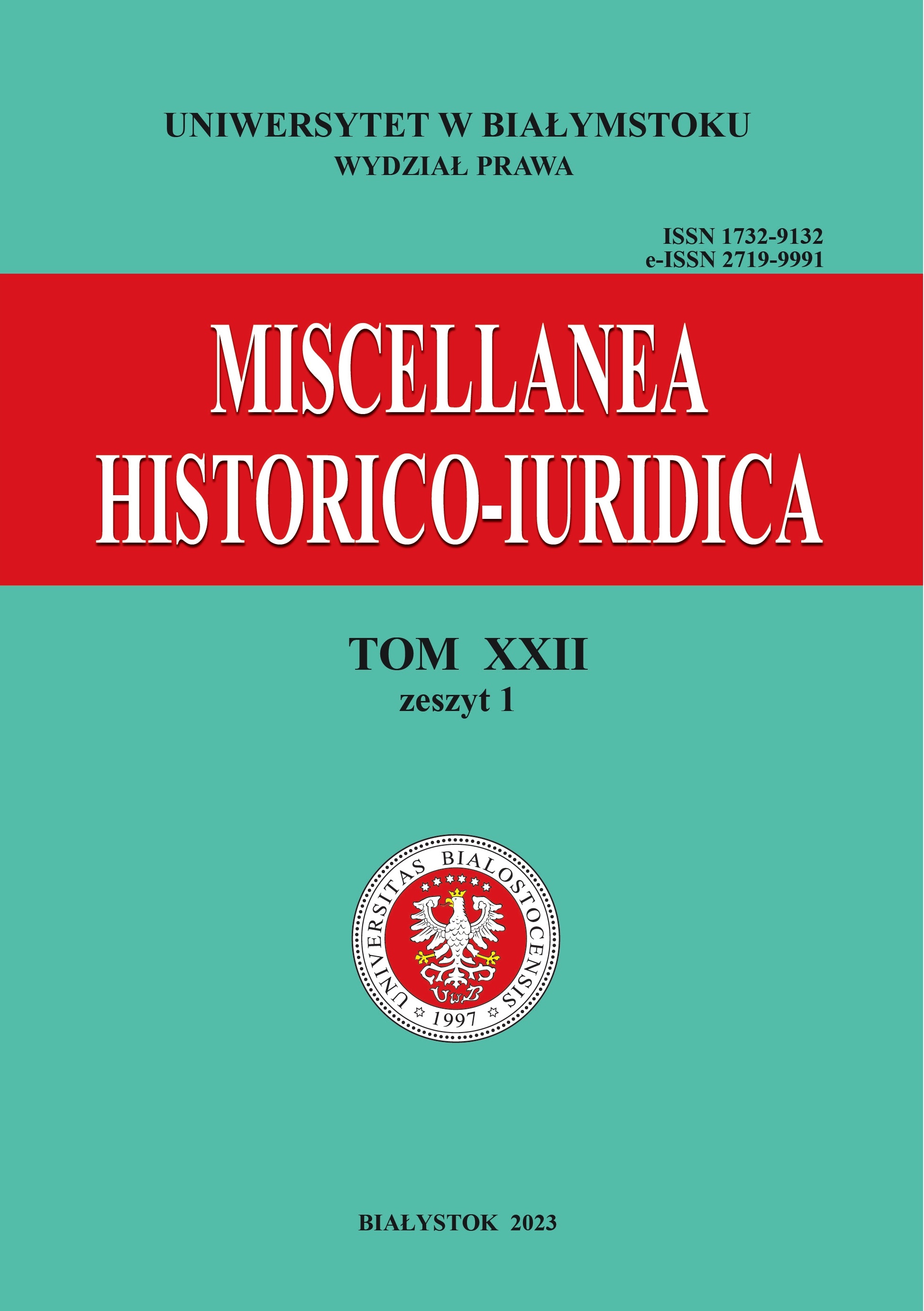Between Justice and Administration: The Montauban Court of Aids Against the Intendant During the Crises of the French Ancien Régime
Keywords:
court of aids, intendance, justice, administrationAbstract
The relations between the sovereign courts and the intendants contain a tormented and unsuccessful history, marked since the Grand Siècle by the difficult passage from the traditional jurisdictional management of the kingdom, considered inefficient, to an organisation that supports the triumph of the absolute and administrative monarchy. In these southern lands of the kingdom of France, torn apart by the Protestant reformation and the wars, the institutional upheaval which prepared the modern state and the Napoleonic granite masses, was carried out through strong embarrassments which opposed the intendant of the generality to the court of aids in Montauban. As soon as they were created, the magistrates of the jurisdictional company multiplied the manoeuvres against the intendant to safeguard their contentious attributions and the control of the municipal funds. Their particularistic actions were denounced by the intendant, who was there to make the king present everywhere in the kingdom and was zealous in his service. Since then, all the elements were in place for the outbreak of a noisy quarrel – the lawsuit against the intendant Gaspard Lescalopier – which worried the government at the turn of the reign of Louis XV, in the middle of the tax war in 1749, when King Louis XV, whom the subjects looked upon as a charming prince, became „Louis the Unloved”. These tumults prevented the modernisation of the French monarchy and led to the troubles of the Revolution.
References
Antoine M., Louis XV, Paris 1989.
Antoine M., Le gouvernement et l’administration sous Louis XV, Dictionnaire biographique, 2e ed., Paris 2004.
Bluche F., Les magistrats du parlement de Paris au XVIIIe siècle (1715–1771), Paris 1986.
Bluche F., La vie quotidienne de la noblesse française au XVIIIe siècle, Paris 1980.
Bordes M., L’administration provinciale et municipale en France au XVIIIe siècle, Paris 1972.
Braun T.E.D., Un ennemi de Voltaire, Lefranc de Pompignan, Paris 1972.
Brunel L., Les Philosophes et l’Académie française au XVIIIe siècle, Paris 1984.
Chaunu P., La civilisation de l’Europe des Lumières, Paris 1982.
Cuillieron M., Contribution à l’étude des rébellions des cours souveraines sous le règne de Louis XV, Presses Universitaires de France, Paris 1983.
Egret J., Louis XV et l’opposition parlementaire, 1715–1774, Paris 1970.
Gaxotte P., Le siècle de Louis XV, Paris 1933.
Hazard P., La pensée européenne au XVIIIe siècle, Paris 1948.
Hazard P., La crise de la conscience européenne (1680–1715), Paris 1948.
Ligou D., Histoire de Montauban, Toulouse 1984.
Ligou D., La cour des aides de Montauban à la fin du XVIIIe siècle, ≪ Annales du Midi ≫ 1952.
Marion M., Histoire financière de la France, Paris 1914.
Ourliac P., ≪ Les idees politiques de Lefranc de Pompignan ≫, Mélanges offerts à Paul Couzinet, Toulouse 1974.
Ourliac P., ≪ Remerciement de M. Paul Ourliac, membre de l’Institut, elu mainteneur, prononce en seance publique le 28 janvier 1973 ≫, Recueil de l’Académie des Jeux Floraux de Toulouse, 1973, p. 113 a 123.
Plongeron B., Théologie et politique au siècle des Lumières, Geneve 1973.
Robichez G., Jean-Jacques Lefranc de Pompignan, un humaniste chrétien au siècle des Lumières, Paris 1987.
Villers R., Les magistrats d’Ancien Régime, Aix-en-Provence 1984.
Downloads
Published
Issue
Section
License
Copyright (c) 2023 Uniwersytet w Białymstoku (entire issue as a whole); Christine Mengès-Le Pape (article)

This work is licensed under a Creative Commons Attribution-ShareAlike 4.0 International License.







